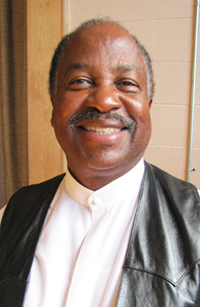
By Lafe Tolliver, Esq
Guest Column
For those who read informational articles about governmental activity in other US cities, there is an interesting story developing in Louisiana regarding the city of Baton Rouge and a sizable portion of its land mass being annexed to form a new city called St. George.
It appears that the occupants of the land mass to be known as the new city of St. George have been fighting for about 15 years to be legally able to disengage itself from Baton Rouge proper and form its own civic and municipal government.
Lower courts blocked their appeal to be a self-governing entity but the Supreme Court of Louisiana recently gave them the green light to “disconnect” from Baton Rouge proper and form their own enclave of about 60 square miles.
When you dissect the demographics of this new city, you will find that it will be 85 percent white and will be quite wealthy to boot, meaning that Baton Rouge will lose a substantial tax base for its mostly minority population.
Losing that tax base means that the citizens of Baton Rouge will suffer a significant loss of public services, which invariably means, a lower station of life for the citizens who cannot afford to move to the new city of St. George.
The aftershock of this separation of the wealthy from the poor has resulted in the usual commiserations that without that tax base, Baton Rouge will eventually turn into a welfare city with rampant crime and inferior schools and lower property values.
That is a possibility unless the aggrieved citizens of Baton Rouge appeal to the United States Supreme Court and argue that such a disengagement of the two “cities” will propagate racial residential segregation now being condoned by law.
The proponents of this newly created city cite the overwhelming crime rate in Baton Rouge and the inferior schools as their reasons for such a separation indicating that the present government of Baton Rouge lacks the expertise and the spinal fortitude to control crime and to enforce housing codes so that Baton Rouge does not become a sprawling ghetto.
For 15 years, the proponents of this two-city formation have aired their concerns with the Baton Rouge officials and to the public at large, but to no avail as to Baton Rouge righting itself; and doing those acts necessary to promote a crime free environment…much less, safe schools for their white children.
When pressed about the real reason the white citizenry is determined to make this civic divorce, it was noted that the white folks who will make up the overwhelming majority of the populace of the new St. George are sick and tired of crime, graffiti, blaring boom boxes and the woefully inadequate schools.
A larger concern was also that their property values were stagnant or in decline due to their “neighbors or neighborhoods” being negligent in the upkeep and maintenance of their homes; and thus causing a drag and a drain upon the value of their homes.
To be noted, Black people are not prohibited from moving into St. George but with the property prices in St. George being towards the high end, the probability of a flood of Black residents flipping from Baton Rouge to the new city of St. George is highly improbable.
It is not a stretch to opine that when white folks move out with their monies, the result is that those left behind may suffer due to the national statistic that white wealth is 10 times as high as Black income. Money rules.
And, if those Black families have the financial wherewithal to also move to St. George, you will then have a stable Black middle class leaving Baton Rouge and with that exodus, Baton Rouge will lose positive role models and intact families.
Speculators have reasoned that if such a dis-engagement is legally successful, you may see similar trends across the country wherein “rich” white areas such as Buckhead Place in Atlanta could also petition for comparable results.
The most negative results would be residential segregation being the law or the rule of the land if you can show that such voluntary separation or self-segregation is based strictly upon economics and race not being a factor.
If America is chafing at the bit to hunker down by everyone fleeing to their own self designed residential caves or bubbles, this land will be pockmarked with large expanses of residential areas populated only by people of either race who have given up on the American ideal of one nation but rather we have become, voluntarily or otherwise, an America of many nations.
Contact Lafe Tolliver at tolliver@juno.com
